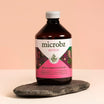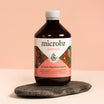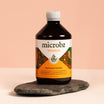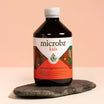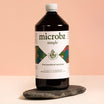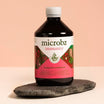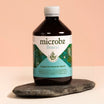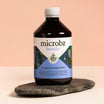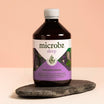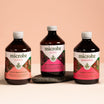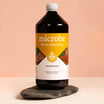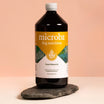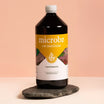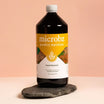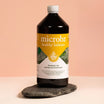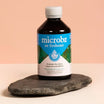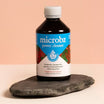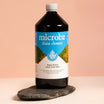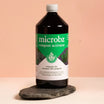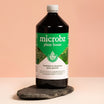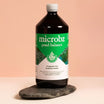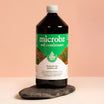A certain amount of stress can be a good thing. Stress helps us to cope with demanding situations by releasing adrenaline for concentration and perseverance. But prolonged periods of stress can pose serious problems for physical and mental health.
Our modern life has a rich array of conditions that cause stress: work demands, relationship struggles, bills, exams, daily hassles and busy schedules. Last week Mental Health Awareness Week focused on stress and the impact it has on mental and physical health. Anxiety and depression are two mental health disorders that can develop from stress. A recent survey found that 74 per cent of people have at some point felt so stressed that they felt overwhelmed and unable to cope.
How does stress impact your microbiome?
Stress can have a big impact on the diversity of microbes in the gut and the less diversity, the greater number of harmful bacteria. The richer and more diverse the community of microbes in your gut the lower your risk of diseases and the less likely you are to suffer from a mental health problem. The microbiome is swamped with energy in the form of undigested and partially digested food particles. The more diverse the microbes are, the more they can transform that energy into new molecules which send crucial messages around the body.
There is growing evidence that most diseases are associated with the loss of microbial diversity. The brain and the gut are intimately linked. The vagus nerve, which connects most of the organs within the body, has an important role in activating the nervous system. 90 per cent of the signals that pass along the vagus nerve come from a huge complex of neurons inside the gut and the enteric nervous system.
The brain receives most information about the state of the body through the gut. Balancing the microbiome and feeding it the right nutrition through a good diet is therefore an important aspect of maintaining mental and physical health.
Microbes, depression and anxiety
In 2014, 19.7 per cent of people in the UK aged 16 and over showed symptoms of anxiety and depression. And studies are showing that depression is often a symptom of chronic inflammation. When the body is inflamed, chemicals called cytokines are produced. These inflammatory cytokines produce a wide variety of psychiatric and neurological symptoms which mirror the defining characteristics of depression. elements of our modern lifestyle that can cause inflammation include eating too much processed food and exposure to chemicals and pollution. This inflammation can then cause depression and fatigue.
But there is a saviour! Introducing Serotonin, the feel good neurotransmitter a chemical that transmits signals around the body and the gut microbiome influences serotonin production. In the gut, serotonin is primarily made by endocrine cells. Certain species of microbes within the gut stimulate gut endocrine cells to produce serotonin. In fact, 90 per cent of the body's serotonin is found in the gut. A healthy gut microbiome has a positive effect on mood and can help to enhance calm and focus in anxious situations that would usually cause butterflies in the stomach.
Probiotics can help
The microbes in the gut weigh about three pounds, the average weight of a human brain, and contain 10 times the number of cells in the body. We know that when this fascinating world of microbial activity is healthy the brain is more able to deal with stress. Regularly taking a living liquid probiotic can improve the diversity of healthy microbes within the gut and work to rebalance and restore harmony between the gut and the brain. This could help to overcome stress, depression and other mental or physical issues. Make sure you check out the living liquid super brews in our health range. With 14 families of gut friendly microbes and over 50 juices, herbs and minerals, our Bio-Live range is designed to deliver and maintain the balance of the beneficial microbes in your microbiome.


